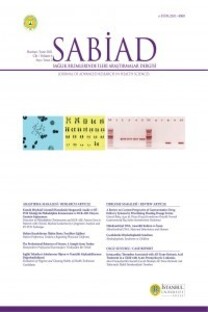PRECISION ONCOLOGY-BASIC TO BEDSIDE
Basic science technologies and platforms have unraveled the molecular basis of carcinogenesis, both genetic and epigenetic events. Few of the events which are repeatedly observed and are actionable, gave birth to the science “Precision Oncology”. The evolution of molecular testing has made a major stride in the recent times, and has empowered personalized cancer medicine over the conventional blanket treatment. Among the important diagnostic technologies, Next Generation Sequencing (NGS) based in-vitro diagnostics have contributed substantially to comprehensive genomic profiling (CGP) in clinical practice that is meant for the detection of substitutions, insertions and deletions (indels), copy number alterations, and gene rearrangements, as well as genomic signatures including Microsatellite Instability (MSI), Loss of Heterozygosity (LOH), Homologous Recombination Defect (HRD Score), Tumor Mutation Burden (TMB). CGP has come into clinical practice with various guidelines endorsing its clinical utility in various indications, both tumor specific and tumor agnostic. Lung cancer is an excellent example where the role of NGS based comprehensive genomic profiling (CGP) has been recommended upfront either on tissue or blood (Liquid Biopsy). In ovarian cancer, calculation like LOH or HRD score, based on the tissue NGS, has widen the eligibility of PARP inhibitor drugs. Further, NTRK fusions, MSI and TMB biomarkers are universal supporting tumor agnostic approach. CGP is a tremendous diagnostic application but brings challenges especially interpretation which are affected by intra/inter tumor heterogeneity, identification of multiple driver mutations, multiple targets and treatment options, cross talk of various mutations and genomic signatures, and various signaling pathways, variable variant allele frequency (VAF), cut-offs for various scores like TMB, LOH, HRD. All these challenges are currently overcome by Molecular Tumor Boards, where basic science understanding in conjunct with clinical experience, has made a huge difference. Thus, offering true precision oncology with unique treatment options for individual patient.
PRECISION ONCOLOGY-BASIC TO BEDSIDE
Basic science technologies and platforms have unraveled the molecular basis of carcinogenesis, both genetic and epigenetic events. Few of the events which are repeatedly observed and are actionable, gave birth to the science “Precision Oncology”. The evolution of molecular testing has made a major stride in the recent times, and has empowered personalized cancer medicine over the conventional blanket treatment. Among the important diagnostic technologies, Next Generation Sequencing (NGS) based in-vitro diagnostics have contributed substantially to comprehensive genomic profiling (CGP) in clinical practice that is meant for the detection of substitutions, insertions and deletions (indels), copy number alterations, and gene rearrangements, as well as genomic signatures including Microsatellite Instability (MSI), Loss of Heterozygosity (LOH), Homologous Recombination Defect (HRD Score), Tumor Mutation Burden (TMB). CGP has come into clinical practice with various guidelines endorsing its clinical utility in various indications, both tumor specific and tumor agnostic. Lung cancer is an excellent example where the role of NGS based comprehensive genomic profiling (CGP) has been recommended upfront either on tissue or blood (Liquid Biopsy). In ovarian cancer, calculation like LOH or HRD score, based on the tissue NGS, has widen the eligibility of PARP inhibitor drugs. Further, NTRK fusions, MSI and TMB biomarkers are universal supporting tumor agnostic approach. CGP is a tremendous diagnostic application but brings challenges especially interpretation which are affected by intra/inter tumor heterogeneity, identification of multiple driver mutations, multiple targets and treatment options, cross talk of various mutations and genomic signatures, and various signaling pathways, variable variant allele frequency (VAF), cut-offs for various scores like TMB, LOH, HRD. All these challenges are currently overcome by Molecular Tumor Boards, where basic science understanding in conjunct with clinical experience, has made a huge difference. Thus, offering true precision oncology with unique treatment options for individual patient.
___
- Grozescu T, Popa F. Prostate cancer between prognosis and adequate/proper therapy. J Med Life. 2017;10(1):5-12
